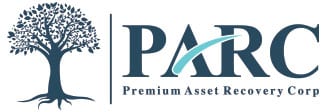The Relationship Between Medical Factoring and Cash Flow

The Role of Medical Debt Buyers in Healthcare 2023
November 22, 2023
RCM Best Practices Guide 2024
December 4, 2023Addressing Cash Flow Complexities in Healthcare
Managing cash flow is more than an administrative function; it’s a vital aspect that directly impacts the caliber of healthcare services you can provide. Optimizing your revenue cycle is paramount in an industry where timely revenue is far from guaranteed. Utilizing medical factoring is an invaluable method to enhance cash flow.
The Emergence of Medical Factoring as a Solution
Medical factoring has come into focus as an effective method for mitigating cash flow challenges. This strategy involves selling your accounts receivable to a medical debt buyer, providing immediate cash, and ensuring steadier cash flow. This is particularly beneficial for dealing with categories like self-pay medical debt and distressed debt, which are often cumbersome to collect.
Scope of This Blog
As we move further into this blog, we will take a look at how medical factoring positively affects cash flow, underscoring its critical role in maintaining smooth healthcare operations, and feature case studies demonstrating its tangible benefits. Our goal is to arm medical practices and administrators with a nuanced understanding of this financial tool, presenting it as a linchpin for resolving many cash flow issues.
Stay tuned as we dissect this multifaceted yet crucial topic, a subject with significant implications for the financial well-being of the healthcare sector.
How Medical Factoring Positively Impacts Cash Flow
The Mechanics of Medical Factoring
Medical factoring is a financial strategy that allows healthcare providers to sell their accounts receivable to a specialized medical debt buyer. This gives healthcare operations an immediate cash boost, which can be essential for maintaining everyday activities.
What sets this apart from traditional forms of debt collection is the role of a non-recourse debt buyer, who takes on the risk of collection, thereby easing the operational strain on healthcare providers.
Turning Uncollected Revenue into Cash
The immediate benefit of medical factoring is its ability to convert uncollected revenue into accessible funds. When insurance claims and patient payments are slow to come in, it damages your revenue cycle management (RCM). This disruption can reduce your ability to meet operational costs, from paying staff to ordering medical supplies.
By selling your accounts receivable, you receive the cash you need upfront. This immediate liquidity allows you to maintain a steady cash flow, ensuring that operational hiccups are minimized and things run smoothly.
Easing the Strain on Revenue Cycle Management
Managing a complicated revenue cycle is resource-intensive and often requires specialized staff. When you opt for medical factoring, the debt collection responsibility shifts to experts in the field. This move doesn’t just ease the workload of your administrative team; it also increases the likelihood of successful debt collection.
In other words, transferring the task to professionals not only gives your in-house staff more time to focus on other important tasks but also enhances your overall revenue cycle by improving collection rates.
Boosting Financial Sustainability
Over time, the regular cash flow generated through medical factoring contributes significantly to your practice’s financial sustainability. Consistent cash flow allows for more predictable planning and resource allocation. Whether it’s investing in new medical technologies or advanced staff training, having reliable cash flow makes it all possible.
The result is a healthcare practice that is financially stable and better positioned to make long-term investments in improving patient care.
A Win-Win for Providers and Patients
By enhancing cash flow, medical factoring creates a mutually beneficial situation. Healthcare providers achieve the financial stability they need while patients enjoy uninterrupted and potentially better medical services.
In a healthcare environment where financial uncertainty can have far-reaching implications, medical factoring serves as a reliable tool for both operational and clinical excellence.
In this section, we’ve explained how medical factoring can be a game-changer for healthcare providers grappling with cash flow challenges. Stay with us as we explore other facets of this valuable financial tool in upcoming sections.
The Importance of Consistent Cash Flow for Healthcare Operations
Why Consistent Cash Flow Matters
In healthcare, consistent cash flow isn’t merely a financial indicator; it’s a critical factor that impacts the overall well-being of your operation. From payroll and supply procurement to maintaining the latest healthcare technology, a steady cash flow ensures that all these elements are in sync, allowing you to provide top-notch patient care.
Operational Consequences of Unstable Cash Flow
Unstable cash flow doesn’t just strain your books; it impacts the quality of services you can offer. For instance, inconsistent cash flow can delay upgrading medical equipment or hinder your ability to hire additional skilled staff. Over time, this can affect patient satisfaction and, ultimately, your practice’s reputation.
Case Study: How Cash Flow Affects Patient Care
A real-world study published in the National Library of Medicine reveals how financial constraints can directly influence the quality of healthcare services. This particular study detailed the effect of limited resources on elective surgeries, showing how budget limitations led to longer waiting times and potentially impacted patient outcomes (NCBI, 2021).
Drawing parallels to our discussion, we can reinforce the importance of consistent cash flow in healthcare operations. When cash flow is limited, even critical aspects like elective surgeries can suffer, thus affecting patient satisfaction and care quality. The research provides an empirical reminder of the real-world repercussions of inadequate cash flow in healthcare settings.
By revisiting this case study, we can see how indispensable consistent cash flow is for the smooth running of a healthcare facility. It ensures financial stability and directly influences the quality of healthcare services offered to patients.
The Cascade Effect on Revenue Cycle Management (RCM)
Consistent cash flow positively impacts Revenue Cycle Management (RCM). When cash flow is steady, it’s easier to manage billing, collections, and payer reimbursements, making the entire revenue cycle more efficient. In turn, an efficient RCM supports better cash flow, creating a positive feedback loop.
In this section, we’ve detailed the integral role that consistent cash flow plays in healthcare operations. By ensuring financial stability, healthcare providers can focus on what matters most—delivering exceptional patient care. The case study serves as a cautionary tale, reminding us of the tangible impact of cash flow on both operational efficiency and patient satisfaction. Stay tuned as we delve into more specific strategies and real-world examples in the upcoming sections.
A Singular Focus: How Medical Factoring Turned the Tide for Business Consulting Inc.
While the case study at hand pertains to a business consulting firm, its implications are highly relevant to healthcare providers. According to a case study by Commercial Capital Factoring, Business Consulting Inc. was struggling with cash flow due to delayed client payments.
After turning to invoice factoring, the firm was able to increase its working capital by 30% within a short period. Not only did this stabilize their cash flow, but it also allowed them to take on more clients and scale the business (Commercial Capital Factoring, 2021).
Medical practices facing revenue cycle challenges can find a lifeline in medical factoring in the healthcare sector. The immediate cash infusion allows medical facilities to meet day-to-day operational expenses and plan for long-term growth. The transformation of Business Consulting Inc. serves as a potent example, demonstrating how a business can go from cash-strapped to prosperous with the help of factoring services.
The Power of Real-World Data
The Business Consulting Inc. case study serves as compelling evidence that factoring can radically improve a business’s cash flow and operational capabilities. For healthcare providers, the benefits are twofold: improved financial sustainability and enhanced patient care. The takeaway here is that medical factoring can be an instrumental tool for healthcare providers grappling with inconsistent revenue streams.
By examining this case study, we underscore the tangible benefits that medical factoring can bring to healthcare operations. It’s not just a financial tool; it’s a strategic asset that can transform your medical practice. Keep this in mind as you explore ways to enhance your cash flow and, in the end, your quality of patient care.
Conclusion
Throughout this exploration, we’ve dissected the intricate relationship between medical factoring and cash flow. We started by delving into the mechanics of medical factoring, illustrating its immediate benefits in liquidating uncollected revenue. We then discussed the undeniable importance of consistent cash flow in healthcare operations.
The Business Consulting Inc. case study was a pertinent example, drawing compelling parallels to the healthcare sector. It clarified that factoring can serve as more than just a stopgap—it’s a sustainable financial strategy that can drastically improve cash flow and operational effectiveness.
As a healthcare provider, your primary aim is to offer outstanding patient care. But to do that consistently, you need a stable financial foundation.
Medical factoring can be that cornerstone, helping you ensure not just the financial health of your practice but also the well-being of the patients you serve. To learn more about how PARC can assist your healthcare practice, please visit our Contact page.
Thank you for joining us in this comprehensive look at medical factoring and its impact on healthcare cash flow. We hope this information serves as a valuable resource, empowering you to make informed financial decisions for the betterment of your healthcare practice.


